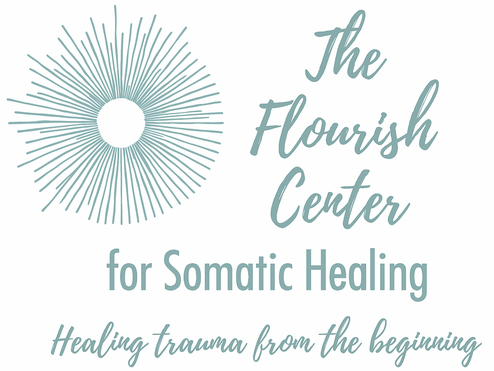In the fields of bodywork, somatic therapy, and yoga therapy, practitioners dedicate their lives to guiding others on journeys of healing and self-discovery. Yet, in professions so focused on supporting others, it is easy for practitioners to neglect their own growth and well-being. This is where mentoring plays a crucial role. Whether you are just starting out or have years of experience, mentorship provides an invaluable opportunity for personal and professional development, deeper self-awareness, and long-term success.
Why Mentorship Matters
- Enhancing Skillsets and Knowledge: Bodywork, somatic therapy, and yoga therapy are complex disciplines that require a combination of technical expertise, intuition, and interpersonal skills. Mentors offer insights that extend beyond what can be learned in formal training programs. They provide guidance on advanced techniques, practical applications, and how to navigate real-world client scenarios. With a mentor, practitioners have the chance to refine their craft and deepen their understanding of their field.
- Navigating Challenges: Every practitioner faces challenges, whether it’s dealing with a difficult client, experiencing self-doubt, or feeling stuck in their practice. A mentor serves as a sounding board and a source of wisdom, helping mentees find solutions and regain confidence. For example, a yoga therapist working with a client recovering from trauma might consult their mentor for strategies to create a safe and supportive environment. These conversations can provide clarity and reassurance in moments of uncertainty.
- Preventing Burnout: The work of a bodyworker, somatic therapist, or yoga therapist can be emotionally and physically demanding. Without proper support, practitioners risk burnout. A mentor helps mentees establish healthy boundaries, practice self-care, and maintain a sustainable practice. They can also offer perspective, reminding practitioners of their purpose and encouraging them to take breaks when needed.
- Cultivating Self-Awareness: Mentorship is not just about professional growth; it’s also about personal transformation. Mentors challenge practitioners to reflect on their own patterns, biases, and emotional triggers. This deepened self-awareness enhances the practitioner’s ability to hold space for clients and fosters authenticity in their work. For instance, a somatic therapist may become more attuned to how their own body’s responses influence client interactions, leading to more effective sessions.
- Building a Community: Mentorship fosters connection. It creates a relationship built on trust, mutual respect, and shared learning. Beyond the mentor-mentee dynamic, it often opens doors to a broader professional network. Practitioners who feel isolated in their work can find a sense of belonging and support within this community, which is essential for long-term fulfillment.
The Benefits for New Practitioners
For those entering the fields of bodywork, somatic therapy, or yoga therapy, mentorship is particularly vital. New practitioners often grapple with feelings of inadequacy, fear of making mistakes, and uncertainty about building a practice. A mentor provides guidance on how to:
- Transition from training to professional practice.
- Navigate the ethical complexities of client work.
- Develop effective communication and interpersonal skills.
- Establish and grow a sustainable business.
Mentors also model what it means to be a seasoned practitioner, offering inspiration and encouragement to mentees as they find their footing.
The Value for Experienced Practitioners
Even experienced practitioners benefit from mentorship. Over time, it’s easy to fall into habitual ways of working or to become complacent. A mentor challenges seasoned practitioners to:
- Stay curious and open to new approaches.
- Refine their techniques and explore advanced concepts.
- Address blind spots that may hinder their effectiveness.
- Reconnect with their passion and purpose.
In addition, experienced practitioners often find fulfillment in the reciprocal nature of mentoring relationships. As they learn from their mentors, they are also better equipped to serve as mentors to others, perpetuating a cycle of growth and learning.
Finding the Right Mentor
Choosing the right mentor is a deeply personal process. Here are some tips to find a mentor who aligns with your needs:
- Look for Alignment: Seek out someone whose values, approach, and experience resonate with you. A good mentor is someone you admire and trust, and who demonstrates the qualities you aspire to cultivate in your own practice.
- Consider Their Experience: Look for mentors who have extensive experience in your specific field. Whether you’re a bodyworker, somatic therapist, or yoga therapist, a mentor with relevant expertise will offer insights tailored to your unique challenges and goals.
- Assess Compatibility: A strong mentor-mentee relationship is built on rapport and mutual respect. During initial conversations, pay attention to how well you connect with the potential mentor and whether their communication style suits you.
- Commit to the Process: Mentorship is a two-way street. Be prepared to invest time, energy, and openness into the relationship. A mentor’s guidance is most impactful when the mentee is actively engaged and willing to learn.
Mentorship as a Lifelong Journey
Mentorship is not a one-time experience but a lifelong journey. As practitioners evolve, their needs change, and they may seek different mentors at different stages of their career. Some may find mentors who guide them for years, while others may benefit from short-term mentoring relationships focused on specific goals.
Ultimately, mentorship is about growth—as a practitioner, as a person, and as a member of a larger community. By embracing the guidance of mentors, bodyworkers, somatic therapists, and yoga therapists can continue to evolve and thrive in their work, ensuring they provide the best possible care to their clients while also nurturing their own well-being.
Mentoring with Lakshmi at Flourish
In a field where the focus is so often on others, it’s essential for practitioners to invest in their own growth and support systems. Mentorship provides the foundation for this growth, offering guidance, connection, and inspiration. Whether you are new to the field or a seasoned professional, seeking out mentorship is one of the most valuable steps you can take in your journey. It is through this collaborative relationship that you can deepen your skills, sustain your passion, and continue to make a meaningful impact in the lives of those you serve. Lakshmi has over 25 years of experience as a practitioner and teacher. She offers in-person and online mentoring sessions and loves working with both new and seasoned practitioners. Book a mentoring session today to see if it is right for you.


